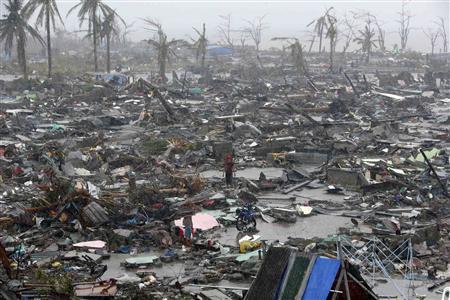Nakatanggap ng Special Citation mula sa 2013 Catholic Mass Media Awards ang artikulo kong "Language of the Heart".
Isinulat ko ito para sa Crossroads, isang magasin para sa mga estudyante. Maraming salamat sa kanila na itinuring nilang karapat-dapat na ilaban ang sanaysay ko.
Ingles ang wikang ginamit ko. Pero tungkol pa rin sa Filipino.
Ipinaskil ko uli rito ang burador nito sakaling may gustong magbasa.
 |
| Parangal mula sa CMMA. Kuha ni Ser Rene Carvajal. |
LANGUAGE
OF THE HEART
Paolo Ven
B. Paculan
She graduated
with a degree in Sociology and Filipino-Tagalog Language Studies with
a minor in Philippine Studies. She was a volunteer in Madapdap,
Pampanga, where toxic waste victims suffer from conditions such as
congenital heart disease, lukemia, and cerebral palsy. She uses
Tagalog to help people get access to government services. And she’s
from California.
Imagine a
cousin of yours, the one who was born in the U.S. Your tito and tita
migrated before both of you were born. They’re in California or one
of a hundred places outside the Philippines where Filipinos are a
thriving community. She’s your Facebook friend but you’ve only
met a few times face-to-face. You call her ate. She looks just like
you. And she sounds just like you. That’s how I would
introduce Ivy Dulay.
I met Ivy
at the 3rd International Conference for Filipino as a
Global Language held in Manila last August 3-5, 2012. She gave a talk
on how Tagalog is the 3rd most commonly spoken language in
America besides English, on how Filipino-Americans yearned to connect
with their “heritage language”, and on what she and other
Filipino-language advocates were doing to fill that need.
She
recalled how she once “didn’t care about learning Filipino”
since proficiency in English was what schools required and rewarded.
But her attitude changed for a very Filipino reason—her family.
“I grew
up thinking that I was American, and that my family was American, and
we were the same as everyone else,” relates Ivy. “But then I
witnessed a family member being denied services because she spoke
with an accent.” She also remembers her father and how “I would
have been closer to him if I had learned his native language.”
So when
she found out that Filipino was being taught in her college, she
jumped at the opportunity. And from there her passion grew. She would
eventually be the first person to graduate with a degree in Language
Studies—Filipino and Tagalog in University of California San Diego
(UCSD). She got a Fullbright Scholarship to study Filipino in the
Philippines. Through the University of Californias’s Education
Abroad Program, she was able to study Panitikang Pilipino and
Sociology at UP Diliman.
After
college, she did development work in the Philippines. Then she
returned to the US and worked at Search to Involve Pilipino Americans
(SIPA), an organization based in Historic Filipinotown Los Angeles
and provides health services and cultural preservation projects. In
2006, she was one of the first 18 to be given a professional license
to teach the Filipino Language.
She has
published several major works including Isang Pag-aaral Tungkol sa
Epekto ng Bilingwalismo sa Pakikipagtalastasan ng Ilang Pilipino (A
Study about the Effect of Bilingualism in the Communication of
Filipinos) in a University of Michigan Journal. She has given
talks on Filipino Language and Culture in different parts of the U.S.
and, more recently, in the Philippines.
During
that conference held in Manila, she was with fellow Filipino
advocates from Malaysia, Japan, and Hawai’i. “The Filipino
language is as global as the Filipino” was one of the messages in
that seminar. She was very happy then because: “My greatest joy is
being able to get to know another person’s story and experience
with the help of knowing how to speak, read, write, and understand
Filipino. Before, when people would ask me ‘Marunong ka bang
mag-Filipino?’ I would often just shake my head and the
conversation would end shortly after. Now, I can say, ‘Opo,
marunong po, pero nahihiya pa rin!’ Then, the other person will
continue with the conversation in Filipino, and we’ll share
beautiful stories and many laughs.”
And she’s
keeping at it. She’s presently doing graduate studies on Dual
Language Development in Education at Cal State University Long Beach.
She says she dreams of starting Filipino language schools and
programs in Los Angeles. She already started a pilot class in
Filipino Language and Culture at the Los Angeles School of Global
Studies.
I asked
her what she would say to Filipino students and she replied:
“View
the Filipino language as a beautiful asset! There are many Filipinos
born in America who wish they had Filipino language classes in
schools. Napakahalaga ang pambansang wika natin. It is a
beautiful language which will continue to open doors for you and for
others. Do not be embarassed by any type of accent – we were all
created uniquely and in God’s image.
“Take
any opportunity you can to commend each other for speaking Filipino.
Often, we see younger generations getting praised for speaking
English, but if they hear positive atittudes towards Filipino, then
it can help others become more proud of being Filipino. Mabuhay
ang wikang Filipino!”
Recently,
Ivy showed up in my Facebook timeline. She greeted her
fiancée a "happy birthday, mahal." A good definition of
language of the heart would be—it is the language you use to
give names to those you love the most. If so, then I know what Ivy's
is.
* * *
 |
| Sa Historic Filipinotown, LA, kung saan ginanap ang kasal ni Ivy. Mula sa FB ni Ivy Dulay. |





